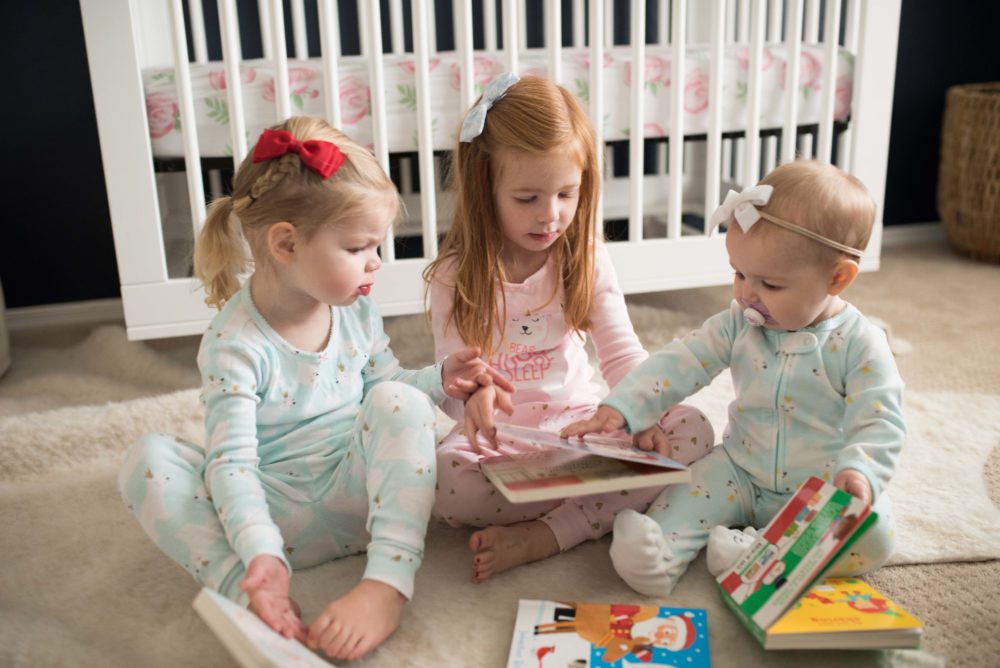Triad of Tactics for Parents With Multiple Kids
To navigate parenting multiple kids, focus on clear expectations, structured routines, and nurturing bonds. Set clear rules to reduce conflicts and establish consistent routines for organization and calm. Spend quality time with each child to strengthen connections and encourage independence. Embrace adaptability and encourage teamwork for a harmonious family dynamic. Use effective communication strategies to foster understanding. These tactics are key for juggling the challenges of multiple kids, promoting a happy and well-adjusted family life.
Key Takeaways
- Establish clear expectations and communication for consistency and mutual respect.
- Implement routines and structure for organization and stress reduction.
- Prioritize quality time and bonding activities for strong parent-child relationships.
- Encourage independence and responsibility through age-appropriate tasks.
- Embrace flexibility, seek support, and prioritize self-care for effective parenting.
Setting Clear Expectations

To effectively manage a household with multiple kids, setting clear expectations is essential. Consistent boundaries and positive reinforcement are key elements in creating a harmonious environment. By establishing consistent boundaries, children know what’s expected of them, which helps reduce conflicts and misunderstandings. Positive reinforcement, such as praising good behavior, motivates children to continue behaving positively.
Open dialogue plays an important role in setting clear expectations. Encouraging your children to express their thoughts and feelings creates an atmosphere of mutual respect. It allows for a better understanding of each other’s perspectives and helps in setting realistic expectations that are agreeable to all parties involved.
Mutual respect is fundamental in the process of setting expectations. When children feel respected, they’re more likely to adhere to the boundaries set for them. By fostering an environment of open communication and mutual respect, you create a positive foundation for effective expectation setting within your household.
Establishing Routines and Structure

Establishing routines and structure in your household is vital for maintaining order and predictability, which can help reduce stress and promote a sense of security for your children. Morning routines are a great way to kickstart the day smoothly. Setting specific tasks like brushing teeth, getting dressed, and having breakfast at designated times can create a sense of organization.
Bedtime structure is equally important. Establishing a calming routine before bedtime, like reading a story or dimming the lights, can signal to your children that it’s time to wind down.
Mealtime expectations are essential for fostering healthy eating habits and family bonding. Setting regular meal times and encouraging balanced nutrition can create a positive environment for shared meals.
Homework routines can aid in academic success. Establishing a designated homework area and consistent study times can help your children focus and stay on track with their schoolwork.
Individual Quality Time

When you have multiple kids, finding time to connect individually with each child is essential for strengthening your bond.
One-on-one activities allow you to focus on their unique interests and needs, fostering a deeper connection.
Whether it’s sharing a hobby or going on a special outing together, these moments create memories that will last a lifetime.
One-On-One Activities
Engaging in one-on-one activities with each of your children is essential for fostering individual connections and strengthening parent-child relationships in a household with multiple kids. Outdoor adventures can be a fantastic way to bond with your child in a natural setting, away from the distractions of everyday life. Whether it’s a hike in the woods, a trip to the beach, or a camping weekend, these experiences create lasting memories and provide a unique opportunity for quality time together.
Creative projects are another excellent avenue for one-on-one activities. From painting and crafting to cooking or building a birdhouse, engaging in hands-on activities can spark your child’s creativity and allow you to share in their interests and passions. These projects also offer a chance for open communication and the exploration of new ideas, strengthening your bond through collaboration and shared experiences.
Bonding Through Hobbies
To strengthen your bond with each of your children, consider delving into shared hobbies that allow for individual quality time together. Hobby exploration can be a fantastic way to create lasting memories and strengthen your connection with each child.
By finding shared interests and engaging in activities that spark joy, you can foster a sense of unity and togetherness within your family.
Creative bonding through hobbies not only provides a platform for fun experiences but also encourages communication and teamwork. Whether it’s working on a puzzle, painting together, or gardening as a family, these shared moments can be incredibly fulfilling.
Family fun is enhanced when everyone is actively involved and contributing, creating a positive environment for bonding to occur naturally.
Exploring hobbies together allows you to appreciate each child’s unique interests and strengths, fostering a deeper understanding of their individuality.
Embrace the joy of shared experiences and watch as your family connections grow stronger through the power of creative bonding.
Special Outings Together
In addition to planning special outings with each of your children to create individual quality time together and strengthen your bond, consider organizing picnic adventures in the park. This can be a wonderful way to enjoy nature, engage in meaningful conversations, and share delicious snacks under the sun. Taking each child on a personalized picnic allows you to focus solely on them, fostering a deeper connection and showing them how much you value their companionship.
Additionally, movie nights at home can be a cozy and entertaining experience where you can snuggle up with your child, watch their favorite film, and simply enjoy each other’s company in a relaxed setting. These movie nights provide a relaxed environment where you can bond over shared interests and create lasting memories.
Encouraging Teamwork and Cooperation

Encouraging teamwork and cooperation among your kids can lead to a more harmonious household. Setting shared goals can foster a sense of unity and collaboration.
Assigning group tasks can help your children learn to work together and support each other.
Setting Shared Goals
How can you effectively foster teamwork and cooperation among your children through the establishment of shared goals? Goal setting is a powerful tool for promoting teamwork within your family unit. By involving all your children in the process of setting shared goals, you encourage them to work together towards a common objective. This not only cultivates a sense of unity but also allows each child to understand the importance of collaboration and cooperation.
Shared accomplishments play a significant role in reinforcing the value of teamwork. When your children work towards a common goal and achieve it together, they experience the satisfaction of collective success. This shared sense of achievement can strengthen their bond and create a supportive environment within the family. By celebrating these shared victories, you reinforce the idea that teamwork leads to positive outcomes, encouraging your children to continue working together towards shared goals.
Assigning Group Tasks
To promote teamwork and cooperation among your children, assigning group tasks can be an effective strategy. Task delegation should be age-appropriate to guarantee each child can contribute meaningfully. By engaging in shared responsibilities, your kids learn valuable team-building skills that will benefit them in various aspects of life.
Consider tasks that require collaboration, such as organizing a family game night or preparing a meal together. These activities encourage communication, problem-solving, and the division of labor.
For younger children, simple chores like tidying up a shared space or working on a craft project can foster a sense of unity and accomplishment.
As your children grow older, you can introduce more complex tasks that challenge them to strategize and work together towards a common goal.
Emphasizing Unity Mindset
To cultivate a sense of unity among your children, fostering a mindset that values teamwork and cooperation is essential. Encouraging open communication channels and emphasizing the importance of working together can help strengthen the bond between siblings.
By promoting teamwork, you’re instilling in them the value of collaboration and mutual support, skills that are vital not only in their relationships with each other but also in their future interactions with peers and colleagues.
Embracing flexibility within your family dynamic is also fundamental. Encourage adaptability by allowing your children to take on different roles within the family unit and promoting independence in decision-making processes.
This not only fosters a sense of empowerment but also teaches them to navigate various situations with confidence and resilience. By fostering an environment that values both teamwork and individuality, you’re equipping your children with the skills needed to thrive both as a team and as individuals in their own right.
Effective Communication Strategies

When juggling the needs and dynamics of multiple children, employing effective communication strategies can help foster understanding and harmony within your family.
Active listening plays an important role in effective communication. Taking the time to truly hear what each child is expressing can make them feel valued and understood. Encourage open communication by creating a safe space where your children feel comfortable sharing their thoughts and feelings without fear of judgment.
Practice reflecting back what your children share with you to show that you understand their perspective. This not only validates their feelings but also demonstrates that you’re actively engaged in the conversation.
Additionally, be mindful of your non-verbal cues, as they can convey just as much, if not more, than words. Maintaining eye contact, nodding, and providing affirming gestures can signal to your children that you’re present and attentive.
Consistent Discipline Methods
When it comes to managing multiple kids, having clear rules at home and a unified parental approach can make a world of difference.
Consistent discipline methods not only establish boundaries but also create a sense of fairness and predictability for all your children.
Clear Rules at Home
Establishing clear rules at home is essential for maintaining consistency in discipline methods when raising multiple children. Consistent boundaries provide a sense of structure and security for your kids, helping them understand what’s expected of them.
Important reinforcement plays a significant role in reinforcing these rules by rewarding good behavior, motivating your children to adhere to the established guidelines.
Parental teamwork is crucial in ensuring that the rules are consistently enforced. By presenting a united front, parents can demonstrate a unified approach to discipline, preventing confusion or manipulation by the children.
Open communication between parents is key to establishing these rules effectively. Discussing and agreeing upon disciplinary measures beforehand can prevent conflicts and inconsistencies in enforcing the rules.
Unified Parental Approach
To maintain consistency in discipline methods when raising multiple children, it’s important for parents to present a unified front in their approach to parenting. Consistent discipline is key to providing a stable and secure environment for your children. When parents are on the same page and enforce rules and consequences consistently, it helps children understand expectations and boundaries more clearly.
Having a unified front means that both parents are in agreement with the discipline methods and support each other in front of the children. This approach minimizes confusion and prevents children from playing one parent against the other.
Consistency in discipline also fosters respect for parental authority and teaches children the importance of following rules.
Communication between parents is essential to make sure a unified front. Sit down together to discuss discipline strategies, set clear guidelines, and establish consequences for misbehavior.
Embracing Flexibility and Adaptability

Embrace the necessity of flexibility and adaptability as a parent with multiple kids, as these qualities will be your greatest assets in maneuvering through the challenges and joys of raising a larger family.
Parenting challenges can vary greatly when you have several children with different needs, schedules, and personalities. Being flexible means being open to adjusting your plans and expectations as situations arise. Adaptability allows you to pivot quickly when things don’t go as planned, helping you navigate the unpredictable nature of family life with multiple kids.
Flexibility and adaptability go hand in hand, enabling you to handle unexpected events, conflicts between siblings, or changes in routines with more ease. By embracing these qualities, you can create a more harmonious environment for your children and yourself.
Remember that it’s okay not to have everything under control all the time. Give yourself grace and allow room for spontaneity and change in your daily routines. Your ability to adapt to the ever-evolving needs of your children will make you a more resilient and effective parent.
Encouraging Independence and Responsibility
How can you nurture independence and responsibility in your children while managing the dynamics of a multi-child household?
Fostering independence involves giving your children opportunities to make decisions and solve problems on their own. Encourage them to take on age-appropriate tasks and responsibilities, such as setting the table or tidying up their toys. By promoting autonomy, you allow them to learn from their experiences and develop vital life skills.
Building responsibility means holding your children accountable for their actions. Set clear expectations and consequences, so they understand the impact of their choices. Instilling accountability helps them recognize the importance of following through on commitments and obligations.
Encouraging independence and responsibility not only benefits your children individually but also contributes to a harmonious family dynamic. Remember, it’s a gradual process, so be patient and provide guidance along the way. By empowering your children to take on tasks and be accountable for their actions, you’re preparing them for a successful future.
Creating Special Family Traditions

Establishing unique family traditions can strengthen the bond between siblings and create lasting memories for your children.
Holiday traditions like baking cookies together every Christmas or having a special movie night on Halloween can bring your family closer. Family recipes passed down through generations can create a sense of continuity and connection.
Annual vacations to a favorite spot or a yearly camping trip can become anticipated events that your children look forward to and cherish. Birthday celebrations can be personalized with unique rituals like a special breakfast in bed or a family game night.
These traditions not only provide a sense of stability and comfort but also help create a strong family identity. By incorporating these special traditions into your family life, you aren’t only fostering a sense of togetherness but also creating memories that your children will carry with them into their own lives.
Self-Care for Parents
To maintain balance and support your role as a parent with multiple kids, it’s important to prioritize self-care practices that nurture your well-being and resilience.
Self-care tips are essential for maintaining good mental health and managing the stress that often accompanies parenting. One effective way to relieve stress is to set aside time for yourself each day, even if it’s just for a few minutes. Engage in relaxation techniques such as deep breathing, meditation, or yoga to calm your mind and body.
In addition to these techniques, make sure to get enough sleep each night to recharge your energy levels. Eating a balanced diet and staying hydrated can also have a significant impact on your overall well-being.
Don’t hesitate to ask for help from friends, family, or a professional if you need it. Remember, taking care of yourself isn’t a luxury but a necessity to be the best parent you can be for your children.
Frequently Asked Questions
How Can I Handle Sibling Rivalry Between My Kids?
When handling sibling rivalry between your kids, focus on conflict resolution techniques and parental mediation. Address issues early, encourage communication, and set clear boundaries. Recognize each child’s perspective and feelings to foster understanding and harmony.
Is It Important to Treat Each Child Differently?
Treating each child differently is essential for their growth. Unique parenting styles and open communication help build trust. Fair discipline fosters respect. Encouraging individuality empowers them. Embrace the diversity in your kids, it strengthens family bonds.
What Should I Do if One Child Feels Left Out?
When one child feels left out, open communication is crucial. Address their feelings, promote inclusion, and manage emotions. Hold family meetings to discuss and find solutions together. Remember, each child’s needs matter, aim for balance.
How Do I Balance Individual Time With Each Child?
To balance individual time with each child, focus on quality time by engaging in activities they enjoy. Communicate openly to understand their needs. Be fair in allocating time, setting boundaries for equal attention. Your effort matters.
How Can I Promote a Sense of Unity Among My Children?
To promote unity among your children, focus on building teamwork and fostering connection. Emphasize inclusivity by celebrating their differences. Encourage collaboration through shared activities and discussions. Strengthen their bond by highlighting the value of their unique qualities.
Conclusion
To sum up, by implementing the triad of tactics – setting clear expectations, establishing routines and structure, and making time for individual quality time – parents can navigate the challenges of raising multiple children with more ease and success.
Remember to communicate effectively, encourage teamwork, and prioritize self-care to create a harmonious and loving family dynamic.
Embrace flexibility and adaptability, and watch as your children grow into independent, responsible individuals while creating special family traditions that will last a lifetime.

Hey there! 👋 I’m a proud mom and passionate writer, sharing my parenting journey. 📝 Join me as I navigate the ups and downs of motherhood, offering tips, advice, and a sprinkle of humor along the way. 🌟







